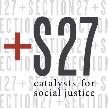More than a year after their finalisation and after many frustrated attempts by civil society organisations and the media to access them - including through the Promotion of Access to Information Act, 2000 - SECTION27 and the Rural Health Advocacy Project (RHAP) have finally been leaked copies of all the provincial reports compiled by the Integrated Support Teams (ISTs). Up to this point, the only report we have received officially is a consolidated report available here. This report is important, but l acks the necessary detail to allow civil society to engage with different challenges in different provinces.
The IST reports on each province were commissioned by the former Minister of Health, Barbara Hogan, in response to the massive budgetary shortfalls that over-whelmed provincial departments of health (PDoHs) in the 2008/2009 financial year, which reached crisis levels when the Free State Department of Health issued a moratorium on the initiation of new patients onto antiretroviral treatment in November 2008. After civil society pressure, that moratorium was finally lifted in February 2009.
The IST reports contain an honest, sobering assessment of the inadequate financial capacity of provincial departments of health that have led to the development of over R7.5 billion in provincial debt as of April 2009. The findings in these reports reveal fundamental failures in political and bureaucratic leadership, inappropriate financial management systems, inadequate monitoring and evaluation systems, and a failure to plan appropriately for human resources, amongst others.
The reports also contain detailed recommendations of what steps must be taken to resolve these systemic failings and assign responsibility to implement the recommendations to the Minister of Health, the National Department of Health (NDoH), the PDoHs, National Treasury, provincial treasuries, the Department of Public Service and Administration and external stakeholders. These recommendations - if implemented - will go far towards developing a public health care system capable of achieving the right to have access to health care services guaranteed in section 27 of the Constitution.
This process, however, requires leadership from the Minister of Health, Dr Aaron Motsoaledi, and the Director-General of Health (DG), Ms Precious Matsoso. The DG already indicated a commitment in this regard when she stated to the Select Committee on Public Accounts in Parliament on 3 August 2010 that:
The basis of our analysis is based on diagnostic work that was done - I refer to the IST reports. As you know much analytical work that is done ... that reports are produced and nothing happens. So what we have done, where there were clear recommendations of what the problem is and what the solution should be and we used that as the basis for coming up with a plan.
We support the DG's statement as a positive sign that the NDoH is intending to take the IST reports seriously. However, in order to support the NDoH in its endeavour, we call on the DG to release this implementation plan as soon as is reasonably possible, as well as to discuss it with civil society organisations involved in health. This could be done by convening the National Health Consultative Forum contemplated by the National Health Act, 2003. We would welcome the opportunity to assist the Minister and DG in ensuring that these recommendations are systematically and continuously implemented.
We call on all entities identified in the reports - particularly provincial treasuries and provincial departments of health - to report on how they will implement the recommendations contained in the reports. We also call for the convening of Provincial Health Consultative Forums in terms of the National Health Act, to enable civil society organisations the opportunity to begin assisting PdoHs in implementing these recommendations.
All IST reports can be found here.
IST reports and the Protection of Information Bill
In addition, it is crucial to note that - despite numerous requests for access to the provincial reports - it is only because they have been leaked to us that we are able to make them available now.
The reports are stamped "Strictly private and confidential" - a stamp we have chosen to ignore due to the overwhelming public importance of these reports. This is a choice that we are currently free to make.
However, the publication of such reports - which enable citizens to hold their government to account - is under direct threat from the proposed Protection of Information Bill. If the Bill were to become law in its current form, we - as SECTION27, RHAP and as individuals - would be committing two criminal acts for which we could face up to 10 years imprisonment simply by possessing and distributing these reports.
This is not constitutionally justifiable and shows the chilling effect the Protection of Information Bill will have on the media, on civil society organisations, and on activists more broadly and it is exemplary of why - we believe - the bill must be redrafted to comply with the constitutional values of access to information and freedom of expression as called for by the Right to Know Campaign (www.r2k.org.za).
Statement issued by Marije Versteeg, Rural Health Advocacy Project and Mark Heywood, SECTION27, incorporating the AIDS Law Project, September 3 2010
Click here to sign up to receive our free daily headline email newsletter

